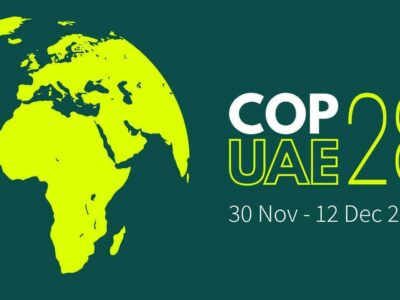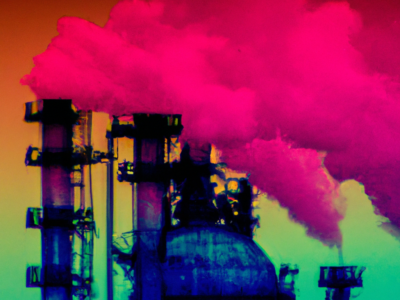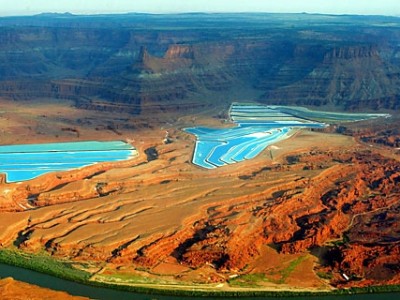Region: International
What EXACTLY Did the UN Conference Decide?
OK, I’m a lawyer: I think it’s important to look at the text.
Having read a lot of takes on the outcome of the latest UN climate conclave, I wanted to see for myself what the agreement says. The key provision in the latest international agreement on emissions reduction is section 28 of Article 2(A).. It states the position of the Conference of the Parties — the consensus …
Continue reading “What EXACTLY Did the UN Conference Decide?”
CONTINUE READINGFood and Farming Makes the Menu at UN Climate Talks
Guest contributor Antonia Moure Richard of UCLA Law reports that regenerative agriculture was a big focus of COP28, but industrial farming was largely ignored.
At the United Nations climate conference known as COP28, it was easy to come to the realization that we must confront every aspect of the climate crisis, and we must do it right now. That includes transforming our food systems. Agriculture has historically been left out of the conversation at COP. That changed this year …
Continue reading “Food and Farming Makes the Menu at UN Climate Talks”
CONTINUE READINGHow much should we worry about climate tipping points?
A new report suggests climate tipping events may be inevitable, and urges transformative approaches to climate policy
It’s hard to keep up with the deluge of climate news around COP28. Climate damages are growing. Carbon budgets are running out. Temperature records are being re-written. Despite new pledges, climate action remains hugely insufficient and grossly unfair. And the world may be unable to avoid passing critical climate tipping points. That last comes from …
Continue reading “How much should we worry about climate tipping points?”
CONTINUE READINGThe COP28 Halftime Report
Has the annual UN climate conference grown too big to function? Takeaways from Week 1 of COP28 in Dubai.
We’ve reached the midpoint of the annual, two-week international climate conference known as COP (for “conference of parties”), so it’s a good time to reflect on what’s gone down in Dubai. I’m attending along with a delegation of UCLA Law students and colleagues here to follow a range of issues, from methane regulation to China’s …
Continue reading “The COP28 Halftime Report”
CONTINUE READINGA $1 Billion Investment in the ‘New Forest Economy’
A global group of governors just issued a call-to-action for more flexible funding for forest protection. Here’s why that’s important.
On December 5, as the 28th Conference of the Parties (COP28) to the United Nations Framework Convention on Climate Change continues full swing in Dubai, Governors, Indigenous Peoples, and other partners of the Governors’ Climate and Forests Task Force (GCF Task Force), launched an urgent call-to-action to finance what they are calling the “New Forest …
Continue reading “A $1 Billion Investment in the ‘New Forest Economy’”
CONTINUE READINGIs “carbon management” just another COP-out?
Fudging the differences between carbon capture and carbon removal risks weakening climate action
Emissions cuts alone will (almost certainly) not keep the global average temperature rise below 1.5°C. But some optimism remains. Alongside a rapid phase-out of fossil fuels, substantial deployment of carbon dioxide removal (CDR) techniques might avert – or at least limit – overshoot of 1.5°C. At COP 28 this week the US and several partners …
Continue reading “Is “carbon management” just another COP-out?”
CONTINUE READINGAddressing Corruption In Electric Vehicle Battery Supply Chains
New CLEE/NRGI issue brief offers solutions
In the race to scale up a global supply chain for electric vehicle batteries, mining justice advocates have sought to ensure that the ongoing clean technology minerals boom does not exacerbate longstanding negative impacts from the global mining industry. Chief among these are corruption risks. To provide guidance to electric vehicle purchasers (particularly fleets), advocates, …
Continue reading “Addressing Corruption In Electric Vehicle Battery Supply Chains”
CONTINUE READINGThe New Frontier of Methane Regulation
Nations, companies, and NGOs are targeting methane like never before using satellite data. A new UCLA paper outlines what that could mean for regulation.
Methane is ready for its close-up. The first week of COP28, the UN climate talks taking place in Dubai, saw a handful of big announcements about how world leaders plan to tackle human-made climate change by targeting methane, a powerful short-term climate pollutant. The UCLA Emmett Institute is also drawing attention to the issue of …
Continue reading “The New Frontier of Methane Regulation ”
CONTINUE READINGClimate Change and the Hard-Headed Realist
Henry Kissinger showed that you don’t have to have a shred of idealism to favor climate action.
It’s not surprising that Bernie Sanders said, rather emphatically, that he was not a friend of Kissinger’s. Yet there was one issue where they did agree: climate change. If there was one thing that Henry Kissinger stood for, it was the hard-headed “realist” view of foreign policy — a view that prioritizes national interest at …
Continue reading “Climate Change and the Hard-Headed Realist”
CONTINUE READINGWhy Do Small Changes in Global Temperature Matter So Much?
One problem is that we’ve pursued optimization rather than robustness.
Scientists are warning us that even comparatively small changes in average temperature may have disastrous results. If you turn up your thermostat 2 ºC (about 3.6 ºF), the difference may be noticeable but it’s no big deal. So why is that a scary increase in global temperatures? Some reasons are physical, particularly the difference between …
Continue reading “Why Do Small Changes in Global Temperature Matter So Much?”
CONTINUE READING













